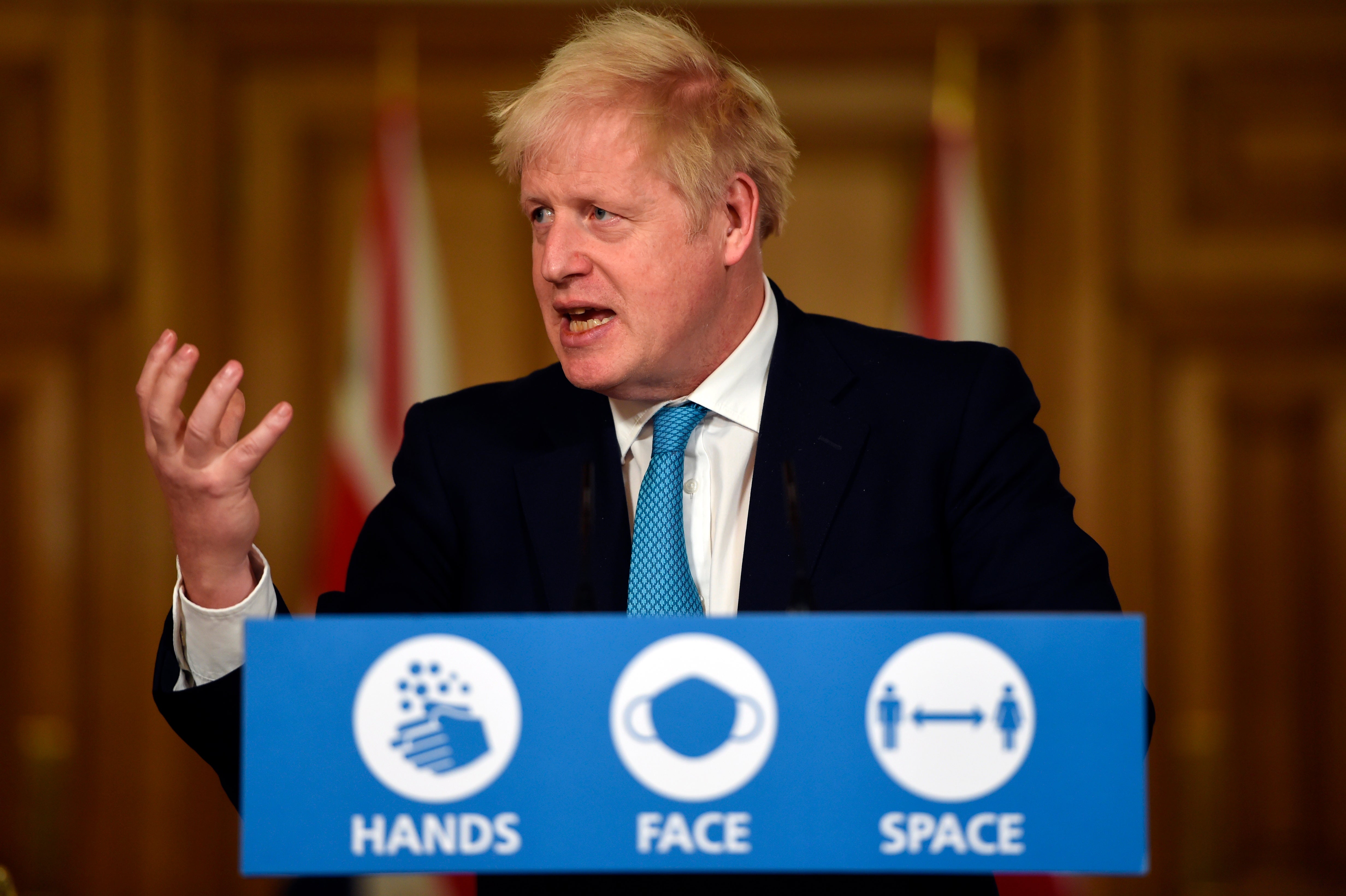Boris Johnson’s government has squandered trust – the precious resource we need to deal with coronavirus
Editorial: People are less likely to make sacrifices when questioning the decisions of their leaders

The control of a pandemic virus requires a huge collective effort, which is only possible if people have a high degree of trust in each other and in their government. That is why the findings of today’s BMG opinion poll for The Independent are so serious. According to the poll, only 36 per cent of the British people trust Boris Johnson to lead the response to coronavirus, against 44 per cent who do not.
This is a problem because it means that when the prime minister asks people to make sacrifices for the common good, they are less likely to do so. They are more likely to ask whether Mr Johnson has got it right, and less likely to comply with rules, even if they agree with them in principle.
Some of this is a natural scepticism about political leaders, common to all nations and all times, a right and proper feature of functioning democracies. But some of it is Mr Johnson’s own fault. He indulged Dominic Cummings, his chief adviser, when he defied the government’s guidance, returning to the office after his wife had symptoms of coronavirus. That episode, and the trip to Durham that followed, had a huge symbolic significance, spreading the idea that there was “one rule for them” and a different rule for everybody else. It was corrosive of the idea of solidarity, that we are all in this together – which depends on people following the rules because they think everyone else is following them.
Mr Johnson has also undermined his authority by appearing to go against the advice of Chris Whitty, the chief medical officer, and Sir Patrick Vallance, the chief scientific adviser. Despite claiming to be “guided by the science”, the prime minister ignored most of the recommendations of the Scientific Advisory Group for Emergencies (Sage) on 21 September.
He may have been right to do so. The group itself said that decision makers had to take into account the economic and social costs of the measures it suggested, and Professor Whitty and Sir Patrick have continued to stand by government policy in public, while suggesting that it is likely to need to go further.
But Mr Johnson owes the nation an explanation of the apparent difference between the Sage recommendations and his policy. Without such an explanation, there is a danger that people will think the prime minister is more interested in holding his party together – because there are a large number of Conservative MPs who are against almost all public-health restrictions on personal liberty – than in keeping the country safe.
Mr Johnson could point to other findings of The Independent’s poll. One quarter of those surveyed reported a loss of household income as a result of coronavirus or the response to it, and BMG estimates that about one million households have lost more than half their income. These figures imply serious hardship, and we also report today that the Trussell Trust, the foodbank charity, is forecasting that it could be giving out six food parcels a minute this winter.
It may be that the prime minister is right, in the light of these facts, to protect jobs and the economy at the expense of a higher level of infections. But our poll does not suggest that the public agrees with him: 49 per cent believe the government should prioritise limiting the number of deaths from coronavirus, while 30 per cent say it should put limiting the damage to jobs and the economy first.
Mr Johnson urgently needs to explain why his policy appears to diverge both from public opinion and from the advice of the scientists. Otherwise, trust in him and his ministers will be further undermined – thus weakening our efforts against the virus.



Join our commenting forum
Join thought-provoking conversations, follow other Independent readers and see their replies
Comments